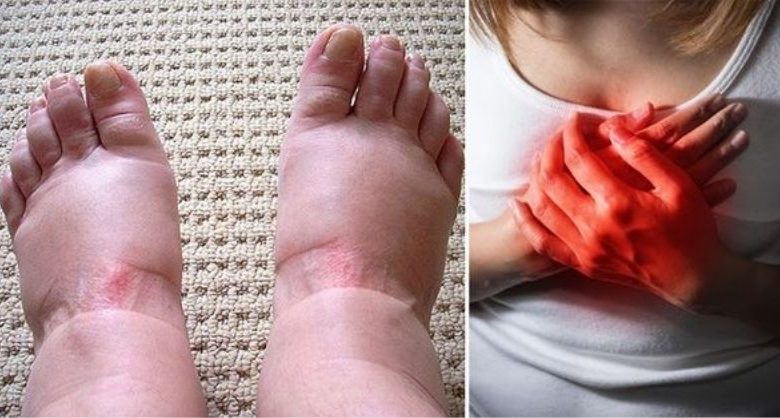
Swollen feet can be caused by various factors, and while most cases can be addressed by resting or elevating the feet, sudden or unexplained swelling may indicate an underlying health issue. If you’re experiencing persistent or severe swelling, it’s important to consult a medical professional to rule out serious conditions.

Causes of Swollen Feet
1. Deep Vein Thrombosis (DVT)
DVT is a condition where a blood clot forms in the deep veins, often in the legs. Along with swelling, you might experience heaviness or discomfort in the legs. DVT can be dangerous as it can lead to a pulmonary embolism if the clot moves to the lungs, blocking blood flow. Seek medical attention immediately if you suspect DVT.
2. Achilles Tendonitis
Achilles tendonitis occurs when the Achilles tendon becomes inflamed, often after physical activities. This can lead to swelling in the ankles and heels. Pain and difficulty moving the foot are common signs. Treatment typically involves rest and physical therapy.
3. Osteoarthritis
Osteoarthritis is the most common type of arthritis and can cause swelling, pain, and stiffness in the joints, including those in the feet. While it can be managed through medication, exercise, and lifestyle changes, it’s important to consult a doctor for a proper diagnosis.
4. Heart Failure
In cases of heart failure, the heart is unable to pump blood effectively, leading to fluid buildup in the body, often in the feet, ankles, and legs. This condition, known as edema, is common in heart failure patients and requires medical management.
5. Lymphedema
Lymphedema occurs when excess lymphatic fluid accumulates in the limbs, causing swelling. It is important to seek medical attention if you experience sudden or severe swelling in your legs, as untreated lymphedema can worsen over time.
6. Cellulitis
Cellulitis is a bacterial skin infection that can lead to swelling, redness, and warmth in the affected area. It often affects the lower legs but can occur in other parts of the body as well. If you notice these symptoms, see a doctor promptly, as cellulitis requires antibiotics for treatment.
7. Gout
Gout is a type of arthritis caused by high levels of uric acid in the blood, leading to sudden, severe pain, swelling, and redness in the affected joint, typically the big toe. Gout flare-ups require medical treatment to manage pain and reduce uric acid levels.
8. Bursitis
Bursitis is the inflammation of the fluid-filled sacs (bursae) that cushion joints. When it affects the feet, it can lead to swelling and pain, often in the heels or toes. This condition can be managed with rest, ice, and anti-inflammatory medications.
9. Rheumatoid Arthritis
Rheumatoid arthritis is an autoimmune disease that can cause swelling, pain, and stiffness in the joints, including those in the feet. It can also lead to deformities and joint damage over time, requiring ongoing medical care to manage symptoms and prevent further damage.
Conclusion

Swollen feet can result from a variety of conditions, ranging from minor to serious health issues. If you experience sudden or unexplained swelling, or if it’s accompanied by pain, redness, or other unusual symptoms, it’s important to seek medical attention as soon as possible. Prompt diagnosis and treatment can prevent complications and help you manage any underlying health issues.






